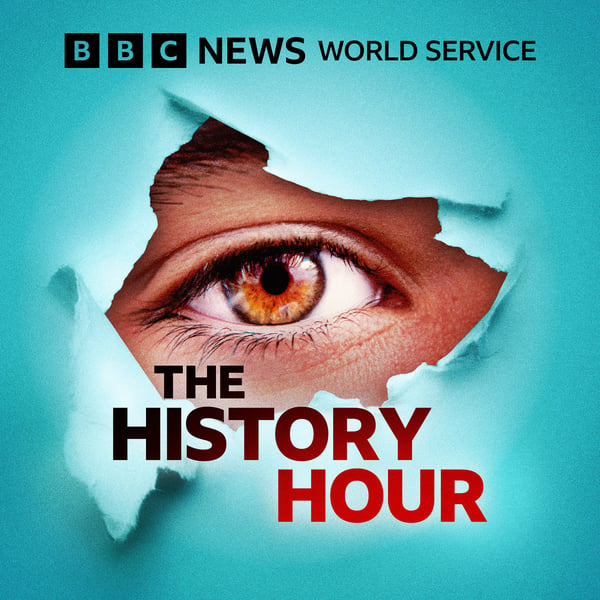North Korea's 1990s famine
The History Hour
BBC
4.4 • 879 Ratings
🗓️ 10 July 2021
⏱️ 50 minutes
🧾️ Download transcript
Summary
When the USSR collapsed it could no longer support North Korea, leading to hundreds of thousands of deaths due to starvation and malnutrition. We hear from one survivor and Prof Hazel Smith who explains some of the contributing factors behind the 'long, slow famine'. Also on the programme, the bombing of the Rainbow Warrior, why the UK sent all its gold to Canada during World War Two, battling for Roma rights and the mystery behind Cuba's blindness epidemic. All told by the people at the heart of the stories.
Photo: North Korean boys at a kindergarten in Pyongyang pose for a World Food Programme Emergency Food Assistance photographer in 1997. Their thin arms and legs, knobby knees and distended abdomens show that they are seriously malnourished. (Credit: Susan North/AFP/Getty Images)
Transcript
Click on a timestamp to play from that location
| 0:00.0 | Hello and welcome to the History Hour podcast from the BBC World Service with me Max Pearson and the witness history team. |
| 0:06.4 | This week the sinking of the campaign ship the Rainbow Warrior in 1985. |
| 0:10.8 | And that's when the second bomb went off it went off right underneath us that had been placed on the propeller. |
| 0:15.8 | That's what I thought. |
| 0:17.4 | There's really something bad going on and that's when I started calling out a banon ship. |
| 0:22.0 | Also how Britain protected its gold reserves in the Second World War by shipping the lot over to Canada |
| 0:27.6 | to be protected in vaults by the mountains. |
| 0:29.9 | They slept in the vaults and they were on 24-hour guard. They never left and I was also |
| 0:35.9 | impressed when he showed us the gun in his draw. |
| 0:40.3 | Plus the very long history of the Roma people and the American doctor who sorted out Cuba's epidemic of blindness in the 1990s. |
| 0:48.0 | For whatever reason, Castro trusted me. |
| 0:50.0 | We hit it off and we communicated well. |
| 0:52.0 | And many times, I didn't convince the majority but I convinced the person I had to. |
| 0:56.7 | That's all coming up later in the podcast, but we're going to start by going back almost 30 years to the famine that ravaged North Korea throughout the 1990s. |
| 1:06.3 | Combined with the run of bad luck in the form of floods which wiped out crops, one of the |
| 1:10.4 | principal reasons for the prolonged food shortages was the collapse of the Soviet Union. |
| 1:15.2 | Josephine Casley has been speaking to Joseph Kim, who was a child during those times and whose father died of starvation, |
| 1:22.4 | leaving Joseph destitute. |
| 1:24.0 | We used to eat three minutes a day and we started eating less meals from three to two to one and some days you just don't have it at all. |
| 1:37.0 | That's Joseph Kim. He was born in North Korea in 1990 and even in his earliest childhood memories food was scarce. |
| 1:45.8 | North Korea is and was a communist state and it had close links to the Soviet Union. |
| 1:51.2 | So when the Soviet Union collapsed in the early 90s, North Korea lost one of its |
... |
Please login to see the full transcript.
Disclaimer: The podcast and artwork embedded on this page are from BBC, and are the property of its owner and not affiliated with or endorsed by Tapesearch.
Generated transcripts are the property of BBC and are distributed freely under the Fair Use doctrine. Transcripts generated by Tapesearch are not guaranteed to be accurate.
Copyright © Tapesearch 2025.

